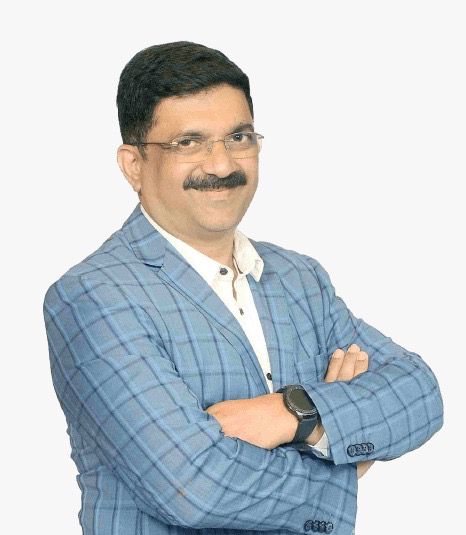Degenerative Disc Disease (DDD) is one of the most common causes of chronic back pain and neck pain in adults. Despite its name, it’s not a disease but a condition that arises due to the natural aging process of the spinal discs. As we age, the intervertebral discs — which act as shock absorbers between the vertebrae — begin to wear out, leading to pain, discomfort, and mobility issues.
If you’re suffering from persistent back or neck pain, understanding Degenerative Disc Disease is the first step toward effective treatment. In this blog, we’ll explore the causes, symptoms, diagnosis, and treatment options for DDD and why Ishaan Ortho & Spine is regarded as the best spine hospital in Bangalore for treating such spinal conditions.
Understanding Degenerative Disc Disease
Degenerative Disc Disease refers to the gradual deterioration of the spinal discs over time. These discs are made of a tough outer layer (annulus fibrosus) and a soft, jelly-like inner core (nucleus pulposus). As the discs age, they lose hydration and elasticity, reducing their ability to cushion the spine effectively.

Key Characteristics of Degenerative Disc Disease:
Progressive weakening of spinal discs
Occurs commonly in the cervical (neck) and lumbar (lower back) regions
Leads to chronic pain, stiffness, and reduced range of motion
What Causes Degenerative Disc Disease?
The primary cause of Degenerative Disc Disease is aging, but certain factors can accelerate disc degeneration, including:
1. Genetic Predisposition
Some individuals are genetically more likely to develop early disc degeneration.
2. Repetitive Strain or Injury
Occupations or activities involving heavy lifting, bending, or twisting can strain the discs.
3. Smoking
Nicotine reduces blood flow to the discs, speeding up degeneration.
4. Obesity
Excess weight adds pressure on the spine, accelerating wear and tear.
5. Sedentary Lifestyle
Lack of movement weakens the spinal structure and supports.
Common Symptoms of Degenerative Disc Disease
The symptoms of Degenerative Disc Disease can vary depending on the location and severity of the disc degeneration. Some individuals may experience mild discomfort, while others may suffer from debilitating pain.
Common symptoms include:
Chronic back pain or neck pain
Pain that worsens with sitting, bending, or lifting
Numbness or tingling in arms or legs
Muscle weakness
Pain that improves with walking or changing positions
If you experience any of these symptoms, it’s essential to consult a spine specialist for a detailed evaluation.
How is Degenerative Disc Disease Diagnosed?
Diagnosing Degenerative Disc Disease typically involves a combination of medical history, physical examination, and imaging tests.
Diagnostic Tools:
X-rays: To detect disc space narrowing
MRI Scans: To view soft tissue damage and disc condition
CT Scans: To assess bony structures in greater detail
At Ishaan Ortho & Spine, advanced diagnostic tools are used to accurately assess the extent of disc degeneration, ensuring precise treatment planning.
Effective Treatment Options for Degenerative Disc Disease
While there is no cure for Degenerative Disc Disease, several treatment options can help manage pain and improve quality of life. The goal is to relieve symptoms, restore mobility, and prevent further degeneration.
1. Conservative Treatments
Physical Therapy: Strengthens supporting muscles and improves flexibility
Pain Medications: NSAIDs to manage inflammation and discomfort
Lifestyle Modifications: Weight loss, posture correction, and quitting smoking
Hot and Cold Therapy: To relieve acute pain and muscle spasms
2. Minimally Invasive Procedures
When conservative treatment fails, minimally invasive procedures may be recommended:
Epidural Steroid Injections: To reduce inflammation and pain
Radiofrequency Ablation: To block pain signals from nerves
3. Surgical Interventions
In severe cases where conservative methods do not work, surgery may be considered:
Discectomy: Removal of the damaged portion of the disc
Spinal Fusion: Joining two vertebrae to stabilize the spine
Artificial Disc Replacement: Replacing the degenerated disc with an artificial one
Why Choose Ishaan Ortho & Spine for Degenerative Disc Disease Treatment?
If you’re searching for the best spine hospital in Bangalore, look no further than Ishaan Ortho & Spine. With a team of highly experienced spine specialists, advanced medical technology, and a patient-first approach, they offer comprehensive care for all spine-related conditions, including Degenerative Disc Disease.
What Makes Ishaan Ortho & Spine the Top Choice?
Board-certified spine surgeons
State-of-the-art diagnostics and surgical equipment
Personalised rehabilitation programs
Minimally invasive treatment options
Holistic pain management approach
From diagnosis to recovery, Ishaan Ortho & Spine ensures world-class treatment for patients suffering from back pain, neck pain, or any form of spinal degeneration.
Tips to Prevent or Slow Down Disc Degeneration
While ageing is inevitable, certain lifestyle habits can help slow the progression of disc degeneration:
Maintain a healthy weight
Exercise regularly to strengthen back and core muscles
Avoid smoking and alcohol
Practice proper posture, especially while sitting or lifting
Stay hydrated to maintain disc fluidity
Conclusion
Degenerative Disc Disease is a common spinal condition that can significantly impact your daily life. Understanding its causes, symptoms, and treatment options is essential for early intervention and effective pain management. If you’re experiencing persistent neck or back pain, don’t ignore the signs. Consult the experts at Ishaan Ortho & Spine, the best spine hospital in Bangalore, for advanced, personalised care.
Book your appointment today and take the first step towards a pain-free life.








